Ajit Pai
Latest
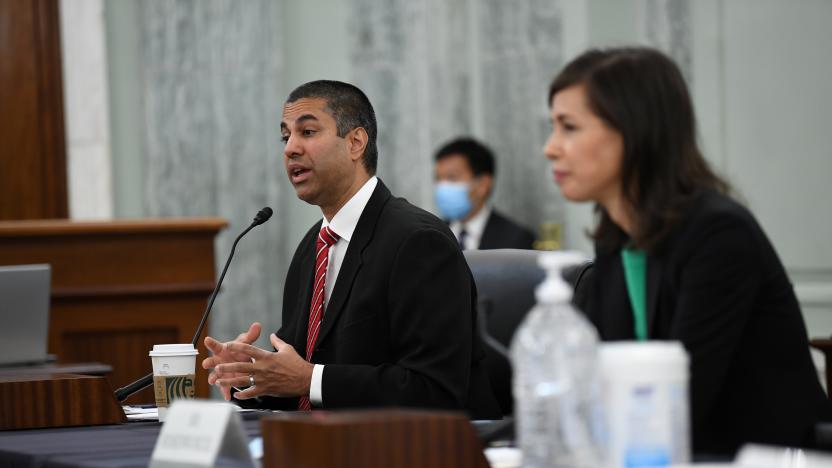
NY AG report finds 18 million FCC net neutrality comments were fake
It turns out there was far more fraud than previously thought during the FCC's flawed net neutrality commenting process.

President Biden names Jessica Rosenworcel acting FCC chair
Jessica Rosenworcel, the FCC’s leading Democrat, will serve as acting chairwoman, replacing Ajit Pai.

After Math: 24-hour PogChamps and 56-inch 'Hyperscreens'
The virtual CES 2021 starts this week, and Section 230 is apparently staying put. Here are some of the top headlines from this just bonkers week.
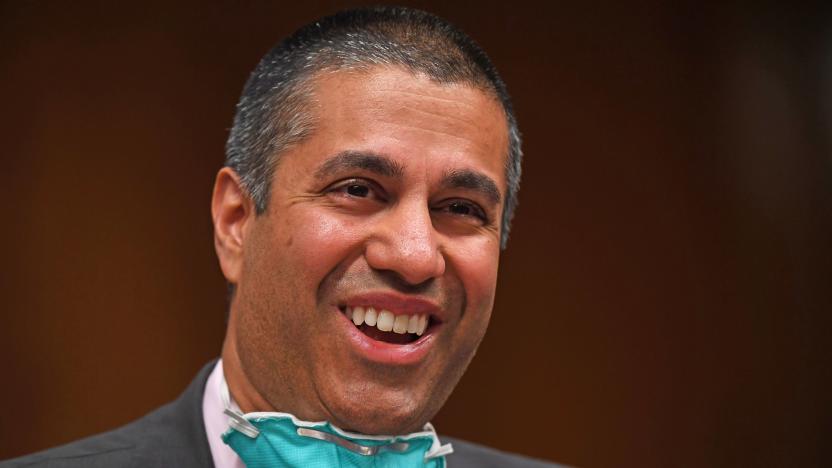
FCC head Ajit Pai won't reform Section 230 before he leaves office
After announcing that he planned to “clarify” the meaning Section 230 free speech internet rules back in October 2020, FAA chairman Ajit Pai has now backed away from that idea.
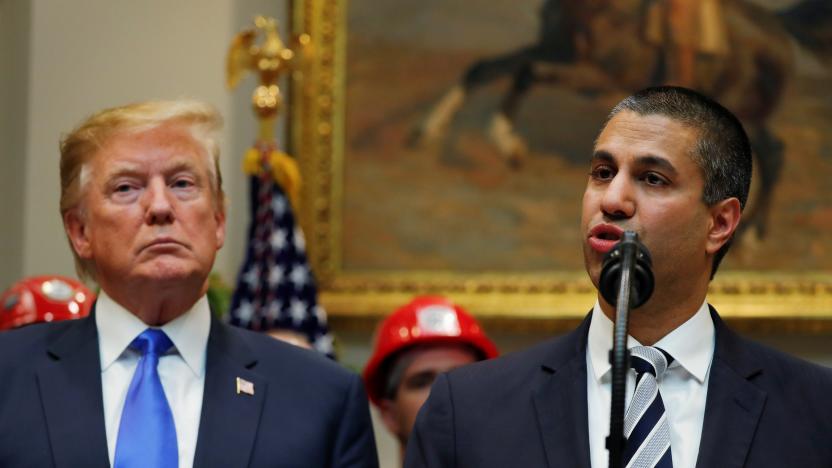
Ajit Pai is stepping down as FCC chairman. What happens next?
Last week, Federal Communications Commission Chairman Ajit Pai signaled his intent to resign on January 20th, freeing his seat to be filled by the incoming Biden administration. For those keeping count, Pai's term was originally set to expire in June 2021, but it is customary for the commission's chairman to step down when a president of another party takes office. “It has been the honor of a lifetime to serve at the Federal Communications Commission, including as Chairman of the FCC over the past four years,” Pai said in a statement at the time, before expressing particular pride on being the first Asian-American to chair the FCC.
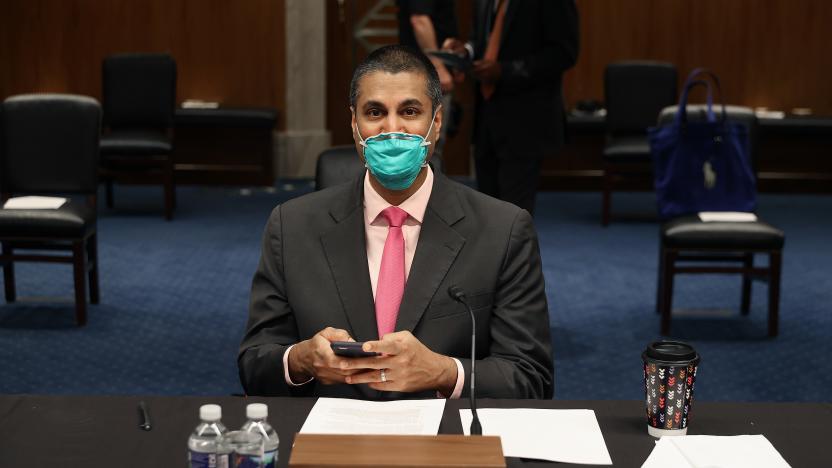
FCC's Ajit Pai wants to 'clarify' the meaning of Section 230
Pai's statement comes after President Trump again called for Section 230 to be revoked
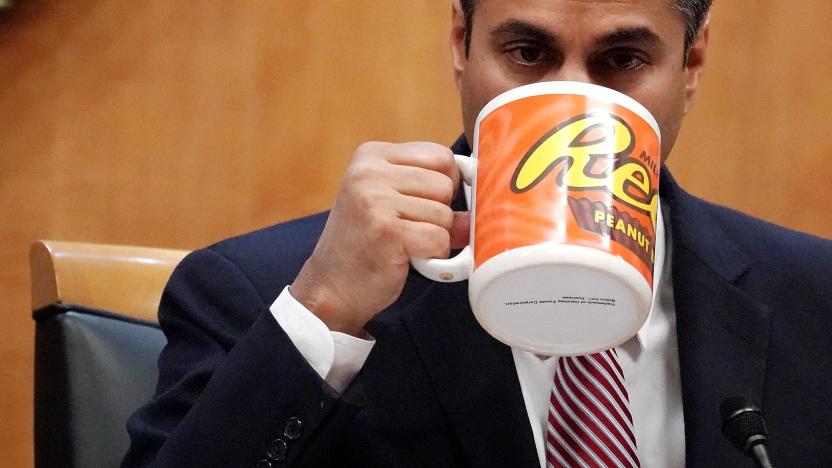
FCC chairman cited false broadband data in spite of warnings
FCC Chairman Ajit Pai used false broadband data for progress claims despite staff pointing out problems years earlier.
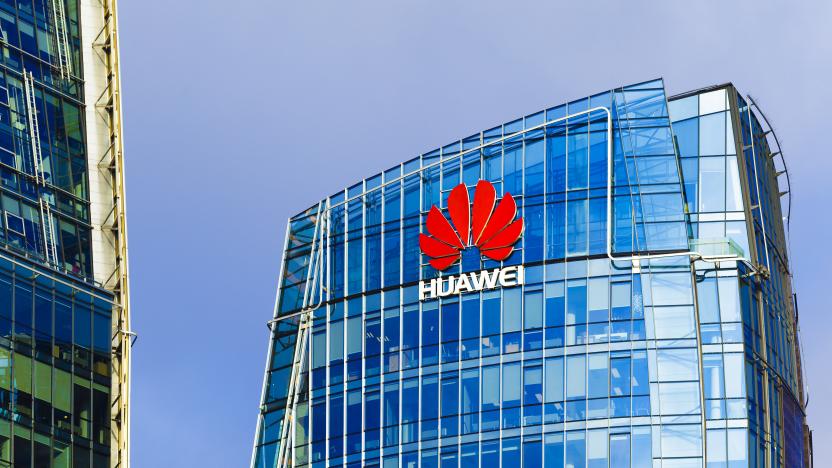
FCC estimates it'll cost carriers $1.8 billion to replace Huawei, ZTE hardware
Restrictions on the companies' equipment have put small providers in a tough spot.

Telehealth got a huge boost from COVID-19. Now what?
During the height of the coronavirus pandemic, venturing outside in New York felt like preparing for battle. “Cancer doesn’t stop for COVID,” said Dr. Mara Weinstein, assistant professor of dermatology at the University of Rochester Medical Center. Dr. Weinstein told Engadget that she is still seeing patients every day in upstate New York.
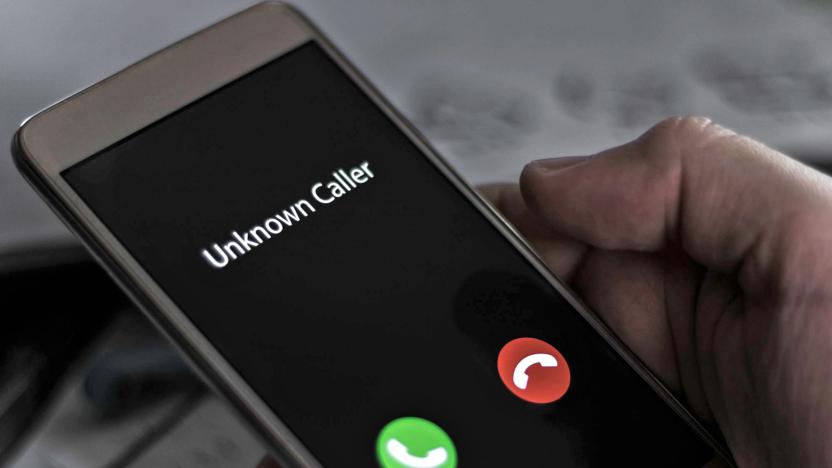
FCC will require phone carriers to authenticate calls by June 2021
The FCC announced today all carriers and phone companies must adopt the STIR/SHAKEN protocol by June 30th, 2021. The regulatory requirement is designed to combat robocalls, specifically those that try to hide their phone numbers by allowing carriers to authenticate caller IDs.

FCC outlines $200 million COVID-19 telehealth plan
Today, the FCC announced a few additional measures to help the US during the coronavirus pandemic. Chairman Ajit Pai shared plans for a $200 million COVID-19 Telehealth Program, which would equip healthcare providers with the broadband connectivity and devices they need to provide telehealth services. The FCC also eased off its ongoing crackdown on cell phone subsidy abuse, saying that it won't de-enroll participants until at least May 29th.
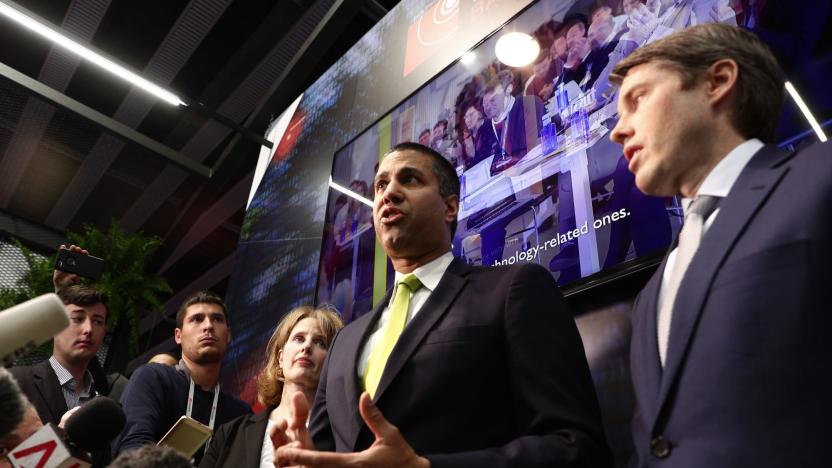
US wireless carriers pledge to suspend cancellations amid outbreak
One day after Commissioner Jessica Rosenworcel called on the FCC to take aggressive action in response to the ongoing coronavirus outbreak, the federal agency has announced the Keep Americans Connected Pledge. For the next 60 days, the agreement calls on telecom companies to maintain service and waive late fees for any residential and small business customers who can't pay their bills due to the pandemic. It also calls on those companies to open their WiFi hotspots.
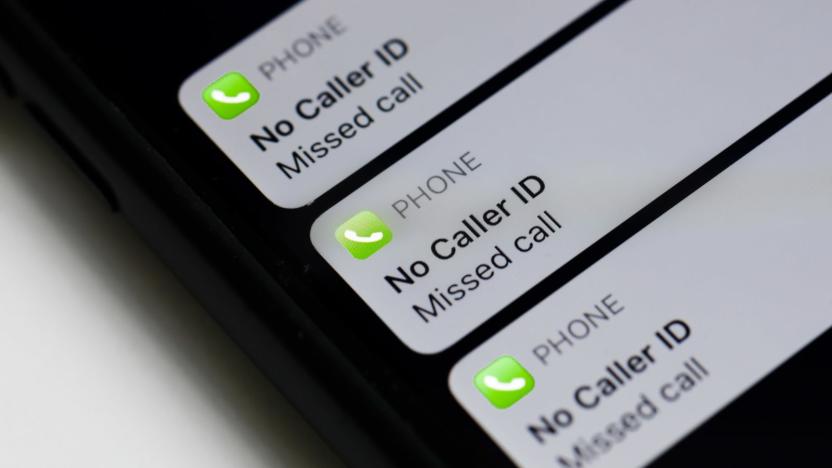
FCC could require phone companies to authenticate calls
Today, FCC Chairman Ajit Pai proposed new rules that would require phone companies to adopt the STIR/SHAKEN protocol, an increasingly popular method for caller ID authentication. The rules are meant to combat robocalls, specifically those that spoof phone numbers, and the FCC is expected to vote on them later this month.
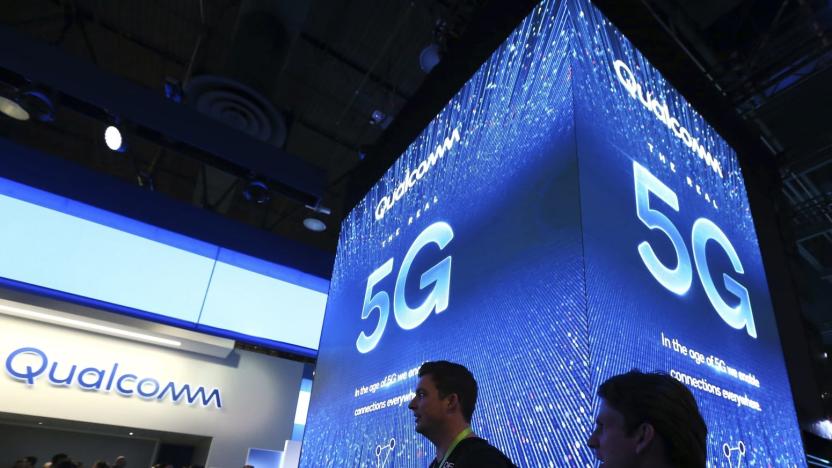
FCC votes to auction C-band satellite spectrum for 5G use
FCC chairman Ajit Pai has been pressing for an auction of "mid-band" wireless spectrum that could be useful for expanding the reach of 5G, and on Friday the commission voted to approve rules for just such a redistribution. The rules cover "C-Band" spectrum that satellite companies like Intelsat, SES SA and Telesat are currently using, and include payment incentives for those companies to speed plans to shift operations away from those frequencies by dates in 2021 and 2023. Otherwise, the spectrum will need to be freed up no later than December 5th, 2025. Those payments could add up to $9.7 billion, and dissenting FCC commissioners argued that there wasn't enough consideration on how much they should be or how funds from the auction should be distributed, and that the FCC was misusing its powers under the law. Jessica Rosenworcel said in a statement (PDF) that, "We could start a fund a new initiative to help with rural broadband. We could fund the nation's transition to next-generation 911, which is sorely needed and would benefit public safety in every state. Or we could use some of the revenues to seed a Homework Gap Trust Fund to help our nation's students stuck in the digital divide. It could support WiFi hotspots for loan in every school library—and virtually eliminate the Homework Gap overnight."

FCC forced to ask for public feedback on net neutrality repeal
Earlier this week, the FCC successfully defeated Mozilla's attempt to undo the commission's repeal of net neutrality. But, while siding with the body, judges have asked the FCC to determine if repealing the law to prevent a multi-speed internet has had any negative consequences. That includes checking if net neutrality repeal has harmed public safety, reduced spending in infrastructure or hampered the Lifeline program.

FCC rolls out a $9 billion fund for rural 5G connectivity
The FCC is creating a $9 billion 5G Fund to support rural high-speed connectivity. The funding is intended to help carriers deploy 5G in hard-to-serve areas, those that are sparsely populated and/or have rugged terrain. At least $1 billion will be reserved for 5G to support precision agriculture.

Security fails we’re kinda thankful for
As we gather 'round the fire, warming our facepalm-weary hands, the blaze burning bright with the shreds of our privacy and security, it's important to reflect on what we're grateful for: Companies that did the infosec version of stepping on a rake, forcing them to secure us better. Idiots who tried to "hack" the FCC comment system while leaving their OPSEC cake out in the rain. Whatever geniuses left road signs eminently hackable, and the ones who made ATMs susceptible to malware that literally spits out cash. Here are the "winners" of utter and complete security failures we're almost grateful for. Let's hope the next time these clowns fall off a stack of servers, they don't fail to miss the ground.
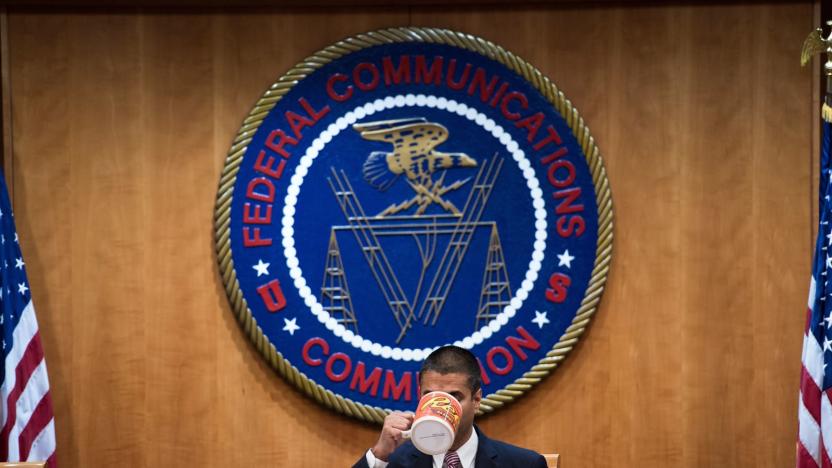
FCC chairman wants public auction to repurpose satellite bands for 5G
The FCC's ongoing 5G push might set up a conflict with the satellite industry. Chairman Ajit Pai is pressing for a public auction of wireless frequencies in the C-band spectrum (the 4GHz to 8GHz range often used by satellite companies) for the sake of 5G service. This would help the FCC clear up "significant" frequency space in a quick fashion, generate money for the government and "ensure continued delivery" of existing services, Pai argued. He hoped to auction off a 280MHz slice while leaving the upper 200MHz available.
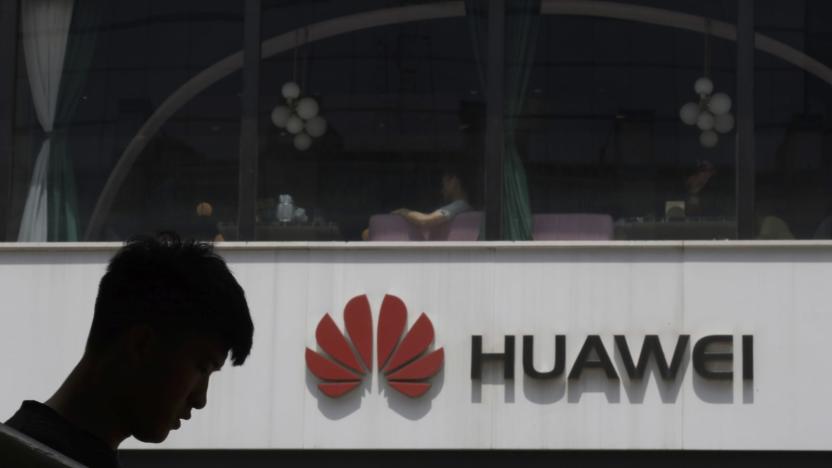
FCC proposal would ban some US telecoms from using Huawei, ZTE gear
The US government might not be content with blacklisting Huawei and otherwise making it clear that Chinese wireless companies are personas non grata. FCC Chairman Ajit Pai has put forward a proposal that would forbid Universal Service Fund recipients from buying equipment from companies deemed to be a "national security threat," including China's Huawei and ZTE. Moreover, carriers who already have that supposedly threatening gear would be required to remove it. The FCC might even offer "financial assistance" to networks to help them switch to other suppliers.
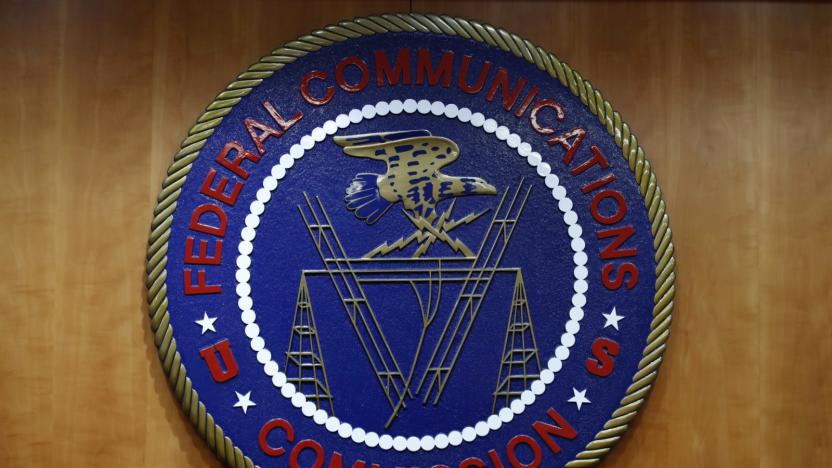
FCC proposes '988' for quick access to national suicide prevention line
The FCC wants accessing a national suicide prevention line to be as simple as dialing 988. In a report sent to Congress today, staff members recommend that the FCC designate 988 as the 3-digit dialing code for a nationwide suicide prevention and mental health crisis hotline.











